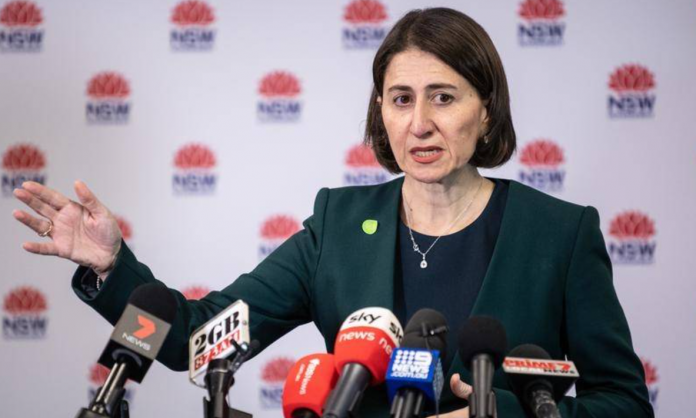The NSW so-called lockdown is a farce. Millions of people are still forced by their bosses to go to work in non-essential businesses. If you’re one of those millions, NSW premier Gladys Berejiklian gave you this advice on 13 July: “Do not go to work unless you absolutely have to. Do not undertake essential work unless you absolutely have to. Those are the rules.”
Got that, workers of Sydney? If you’ve been going to work just because you really enjoy it, now’s the time to stay home. Only go to work if your job is deemed essential. Or, well, if it hasn’t been deemed non-essential. Or if you'll lose your job if you don’t show up. Or if you won’t be able to pay bills without a shift. Think hard! “Even if you consider your work is essential, rethink that,” health minister Brad Hazzard said.
How do you know if your job’s essential? Apparently, there’s no need for the government to actually say: it’s just common sense. Or is it? “Trying to define it is very challenging”, Hazzard said. But in each workplace, “the employer and the employee would know whether that particular worker was essential to the particular circumstances. And so it will be left to the worker and the employer.”
“Leaving it to the worker and the employer” means leaving it to the employer. Without alternative sources of income, workers “absolutely have to” work. That’s the definition of being working class. If you don’t show up, you don’t get paid.
Workers across NSW are fuming that the government – for all its lecturing – is forcing them to go to work and risk their lives and the lives of others, by refusing to shut down non-essential businesses and cover the lost wages of workers.
On the other hand, every boss thinks their profits are “essential”. Business owners “absolutely have to” make profits. They control capital, and need to exploit labour to make money. Throughout the pandemic, bosses have made it clear, over and over again, that profits are more essential to them than human lives and public safety. Especially because they’re mostly risking other people’s lives.
Even the journalists who attend the press conferences have finally cottoned on. “What would you say about a worker at, for example, IKEA?” one asked Berejiklian on 14 July. “IKEA is open and not defined as non-essential. The worker can either choose to go to work, which is what his boss wants, or not go to work.” But the NSW government has still refused to acknowledge the obvious.
And now, while the workers must stand in the firing line at shops with huge foot traffic like JB Hi-Fi, Harvey Norman, and David Jones, many “essential businesses” will be lavished with grants of up to $15,000 by the federal government. The condition is that they keep employees on the books, but not that the money goes to wages for employees to stay home. So why would bosses not simply pocket the grants, and force people to keep coming in to make profits anyway?
Casual workers who have already lost hours but remain on the books are getting no more than $600 a week from the government. If they lose their job outright, that income will be almost halved as they go onto the JobSeeker allowance. With a stroke of a pen, the state government could force a whole raft of workplaces to close whether the bosses wanted to or not, just as they did in Victoria, and either supply income to the workers or demand that Morrison’s government do so. From the perspective of saving human life, this “absolutely has to” happen. But this would mean both the state and federal governments pissing off their capitalist backers, shutting off their source of profits and funding workers’ survival. Instead, Berejiklian has the nerve to tell workers to “have a conversation with their boss” about whether it’s essential for them to be exploited in the middle of a pandemic. She clearly thinks it is.








